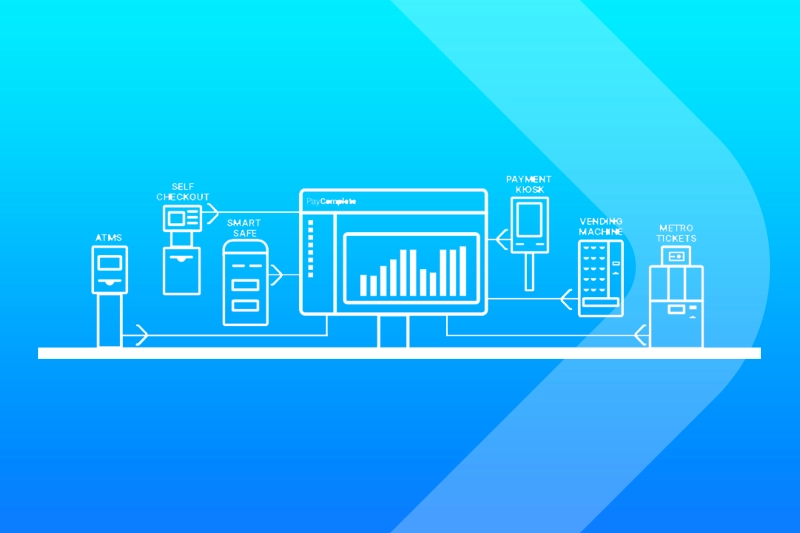While many people are paid electronically, the recent increase in the use of physical money has raised questions about paying employees cash.
Getting paid “cash in hand” certainly has some advantages over bank transfers—there are no bank fees or delays, and there is no chance of running up debt on cards, to name a few.
However, the employer and employee must consider some essential legal, tax, and practical considerations.
Let’s take a look at those obligations in some detail.
What Does “Cash in Hand” Mean?
“Cash in hand” payments refer to wages directly paid to an employee in cash instead of a bank transfer or cheque.
These business transactions occur daily in the construction, hospitality, and domestic work industries.
Many small business owners and consumers may pay cash in hand when buying goods or services, especially from those who are self-employed, such as dog walkers or cleaners. This is perfectly legal, but the income must be declared.
Before proceeding with a “cash in hand” payment, it is essential to consider the responsibility of full disclosure—guaranteeing that the correct amount of tax and National Insurance contributions has been paid and ensuring that employees legally pay tax.
Is Being Paid Cash in Hand Legal?
Yes! Being paid “cash in hand” is legal if the transactions are correctly declared to HMRC, so any tax liabilities are handled.
Making the correct National Insurance contributions and tax payments is essential for accepting cash payments.
While income tax is only levied on earnings above the minimum threshold (£12,750 per year), it is still essential for people receiving cash payments to file an annual tax return. This removes any risk of potential penalties or complications down the line.
If incomes are not correctly declared each tax year and HMRC can prove an individual earns above the national minimum wage, they may face suspected tax evasion. This could result in a sentence of up to seven years!
Employees claiming benefits may also find that this has tax implications for the net amount they should receive.
While there are obligations when an employee receives cash payments, there are many reasons why it could also be a good idea.
Benefits of Cash in Hand Payments for Employees
There are many benefits for employees receiving cash payments – a few are detailed below:
Immediate Access to Funds
“Cash in hand” payments are received instantly, providing employees immediate access to funds.
Employees may also find picking up their pay packet very satisfying at the end of the working week, keeping morale high!
Accessibility & Community
Paying cash in person is convenient for employers whose staff may need help opening or accessing bank accounts. This could include migrant workers or those in rural communities. It also avoids the costs of bank transfer fees and other overheads.
Also, some small business owners trying to reduce their overheads will prefer to accept cash rather than card payments. Paying cash in those situations is a way to help small businesses save money by avoiding high fees when accepting electronic payments.
Simplicity & Budgeting
Cash payments avoid reliance on electronic payment networks, eliminating the frustration of system crashes and inconvenience when shopping.
Another popular reason cash use has increased, is its role in budgeting. Being less reliant on a bank account to keep track of spending means people can more easily set and adhere to budgets.
With cash, people can only spend what’s in their pockets and can’t get drawn into easy credit problems.
Also, some people don’t like having their spending habit data gathered, which is rife with every electronic payment method.
The Risks of Cash in Hand Payments for Employees
Before agreeing to receive cash payments, employees should consider the following risks:
Tax Evasion
Please declare cash-in-hand payments to ensure an employee’s gross pay is accurately recorded. People caught working cash-based jobs without the proper disclosure will fail to pay taxes at the right level, and there will be legal consequences for tax evasion.
Inconsistent Income Reporting
If HMRC suspects an individual is not reporting their income accurately, it may launch an investigation. This process is detailed and meticulous, and the individual must produce documentation dating back seven years.
Therefore, maintaining and keeping documentation is vital. Correctly calculate payments and pay income tax on time to avoid such an investigation.
Security Risks
Carrying large quantities of cash may lead to security risks for employees. These could range from simply losing the money to petty theft and robbery.
Benefits of Declaring Cash Payments
Declaring cash payments and deducting tax correctly offers many benefits to both the business and the employee.
Legal Employment Rights
Cash payments still entitle employees to all given employment rights. These include protection against unlawful wage deductions, the statutory minimum level of holiday pay, parental pay for maternity and paternity leave, pension payments, and the statutory minimum length of rest breaks.
Employee’s entitlement to employment rights should be the same regardless of pay.
Access to Benefits
Similarly, the right of employees to claim benefits such as universal credit should not be affected by whether they are paid via a cash payment or bank transfer.
Credibility for Loans
Accurate records of payments allow employees to prove their income in future circumstances, such as when applying for a loan, mortgage, or other financial product.
What is the Process for Legally Paying Employees in Cash?
- Step 1: Small businesses must legally obtain the employee’s consent to be paid in cash and ensure they know their legal rights. Employees must also see the difference between their gross (baseline salary) and net income (take-home pay).
- Step 2: Provide employees with detailed payslips outlining their gross pay, deductions (such as pension contributions), amount of tax paid, and the net income they’ll receive. Their PAYE reference number should be shown on the payslip.
- Step 3: Businesses must explain tax and statutory benefits to employees, such as how the tax system works and what can affect statutory benefits such as sick pay.
- Step 4: Ensure that tax payments and national contributions are correct and that all “cash in hand” payments are made legally.
- Step 5: The business is responsible for paying employees correctly and fully complying with national living wage laws when calculating gross pay.
What Happens if Cash Payments Aren’t Declared?
Employers and employees who fail to declare cash payments made or received to HMRC face penalties. If found guilty, both could be penalised for tax evasion.
Tax evasion occurs when taxpayers deliberately falsify or omit information in tax returns to reduce their tax liability. This can have some serious penalties.
Employees Failing to Declare Cash Payments
Employees could be liable for prosecution if it can be proven that they earned above the minimum threshold (£12,750) but did not correctly contribute to national insurance payments or tax payments.
However, in most cases, employers will take care of their employees’ tax implications and national insurance contributions. Taxes will be deducted before they pay employees their net rather than gross income.
Employers Failing to Declare Cash Payments
Employers are most likely to be prosecuted for failing to deduct income tax and NI from employees’ wages, paying employees less than the legal minimum wage or paying “cash in hand” to employees who do not have the legal right to work.
The legal implications for businesses will likely be more severe than those for individuals. This is because the issues are likely to apply to multiple employees, which increases the tax liability.
The severity of penalties will depend on whether the tax evasion is deliberate.
It is likely that where an accidental error or oversight occurs, HMRC will only prosecute if the employer or employee fully cooperates to correct the mistakes.
However, if found guilty of tax evasion, convicted individuals face fines and potential prison sentences for more serious offences.
Top Considerations When Making Cash in Hand Payments
- Transparency: All cash payments should be well-documented, including statutory deductions to an employee’s payslip.
- Compliance: HMRC guidelines should be reviewed regularly to ensure employers and employees comply with tax and national insurance contributions.
- Clear policies: All employees should be aware of the deductions from their pay and their responsibility to pay taxes and national insurance.
- Security: Before making “cash in hand” payments, the implications of handling and storing large amounts of cash should be considered—large quantities of money come with inherent risks.
- Integration: A payroll provider that can efficiently manage cash payments is essential to paying cash in hand.
Correctly declared cash payments ensure that employees retain their rights and access to entitled benefits while businesses stay within regulatory frameworks.
What is CashTech?
Although cash use has increased recently, the cost to businesses of accepting it has always been high. However, with technological advancements, accepting cash as a payment method is now more efficient than ever.
CashTech makes physical cash management more efficient, just like card payments. It automates physical cash management while integrating digital precision and real-time data into those processes. Reducing errors and improving efficiency empowers businesses to optimise their cash operations.
Discover how PayComplete can transform your cash management systems with cutting-edge CashTech solutions. Visit us today!

Related Posts








